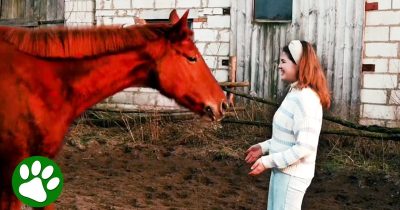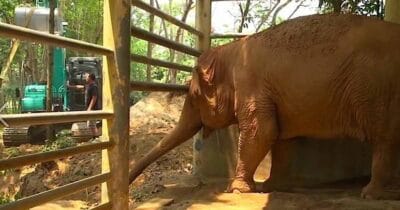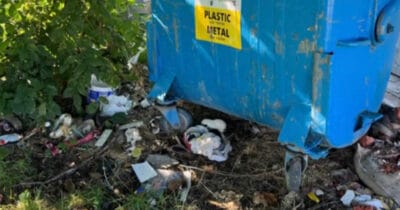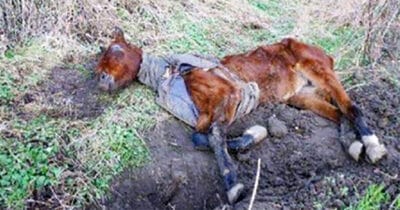
For a zoo, the birth of any new animal is a special occasion. There’s nothing sweeter than seeing an adorable baby animal enter the world.
But it’s even more special when that animal is part of an endangered species. Many zoos are part of programs to repopulate species in danger of extinction, and every new birth is an exciting step forward.
And recently, the North Carolina Zoo got great news when a litter of 12 red wolf pups, a critically endangered species, were born.
The zoo announced their births on Facebook yesterday, saying that three litters were born over three days in late April.
It’s a big deal because the red wolf is the rarest member of the dog family in the world, listed as “critically endangered” by the IUCN Red List. The once-populous species was driven nearly to extinction by the 1960s before receiving protection status.
There are now fewer than 20 red wolves left in the wild. The North Carolina Zoo is part of a program to breed and repopulate the struggling species.
The new litters brings their total number of red wolves to 36, according to WRAL, making them the second-biggest red wolf pack in the country. They have successfully bred 48 wolves since 1994.
“Congratulations to the North Carolina Zoo for playing an essential part in the survival of this critically endangered species,” Secretary Reid Wilson of the N.C. Department of Natural and Cultural Resources said in a press release, according to WRAL.
“These births are important because many of our wolves, once matured, have been moved to other breeding packs to continue to help bring this species back from near extinction. Our hope is that more and more red wolves can soon be placed into the wild.”
In a rare moment, the zoo says one of the litters arrived in the public red wolf habitat, giving visitors a chance to see the newborns.
The young wolves are currently in their den, but will start to venture out sometime in June, and will be available for viewing.
The pups are currently unnamed, but the zoo will hold a poll to name them next month.
These newborns are a great sign of hope for this critically endangered species, and they’re adorable, too! Congrats to the North Carolina Zoo on this amazing achievement!
Share this incredible news!






